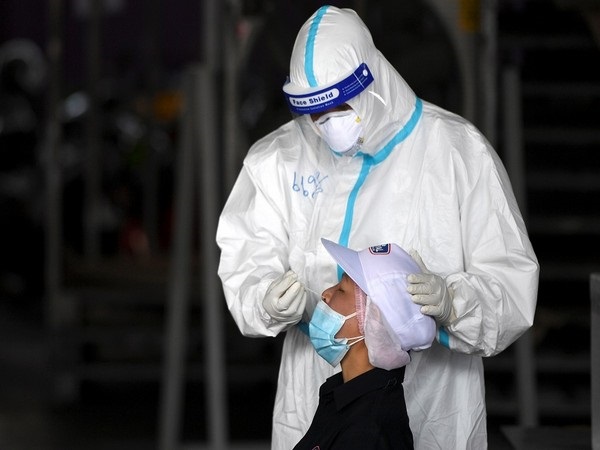Seoul (South Korea), March 31: South Korea's new daily COVID-19 cases fell more than 100,000 to around 320,000 on Thursday, but the number of seriously ill patients hit an all-time high amid the continued spread of the highly transmissible "stealth omicron" subvariant.
The country added 320,743 new coronavirus infections, including 24 cases from overseas, bringing the total caseload to 13,095,631, the Korea Disease Control and Prevention Agency (KDCA) said.
The daily count came to a nearly one-month low of 187,189 on Monday but had risen sharply to 424,641 on Wednesday.
But this week's figures are still smaller than those recorded in recent weeks, as the country has just begun to see a downward trend for the first time in about three months amid the omicron-fueled worst wave of the pandemic. The number of daily infections soared to as high as 621,197 on March 17.
Still, COVID-19 deaths and serious cases remain high.
The number of critically ill patients hit another high of 1,315, up 14 from the previous record set Wednesday.
The country added 375 new COVID-19 deaths Thursday, bringing the total COVID-19 deaths to 16,230. The fatality rate stood at 0.12 percent.
The KDCA has said the number of deaths and serious cases are forecast to grow further in the coming weeks.
The government has sought ways to better protect vulnerable groups to prevent deaths and critically ill patients.
From Thursday, the government began administering COVID-19 shots to children aged between 5 and 11 with Pfizer Inc.'s vaccine.
Around 3.15 million are in this age group, and around 1.3 percent of them had made a reservation as of Monday, the KDCA said.
Of the children aged 5-11, a total of 1.49 million have been infected with the new coronavirus, and five have died, according to KDCA data.
As of Thursday, 32.72 million people out of the total population, or 63.8 percent, had received booster shots. The number of fully vaccinated people came to 44.48 million, representing 86.7 percent, the KDCA said.
The government is also working to increase the number of local clinics that provide face-to-face treatment for COVID-19 patients.
As of Thursday, a total of 380 smaller-scale clinics are available for COVID-19 patients, up from the previous day's 290, as the government began designating more of such clinics on a voluntary basis.
Some 64.2 percent of hospital beds reserved for seriously ill COVID-19 patients were occupied on Thursday, down 2.2 percentage points from the previous day, according to the KDCA.
The government plans to announce its decision Friday on whether to adjust current social distancing rules, as the current restrictions of an eight-person cap on private gatherings and an 11 p.m. business hour curfew on cafes and restaurants are to expire Sunday.
The government has sought a gradual relaxation of virus curbs in an effort to balance virus responses within the current medical system and support people's return to normalcy. One of the likely options is to allow private gatherings of up to 10 people and business operations until midnight.
But the transition team of President-elect Yoon Suk-yeol on Wednesday vowed to scrap the curfew on business hours once the health authorities confirm the virus wave has passed its peak.
"We will gather various opinions from experts, as well as the presidential transition team, before making a decision," a KDCA official said.
The health authorities have been on alert over a possible upturn in infections, as the BA.2 "stealth omicron" subvariant has continued to spread to become the dominant strain in the country by accounting for 56.3 percent of the total infections last week.
Source: Yonhap

